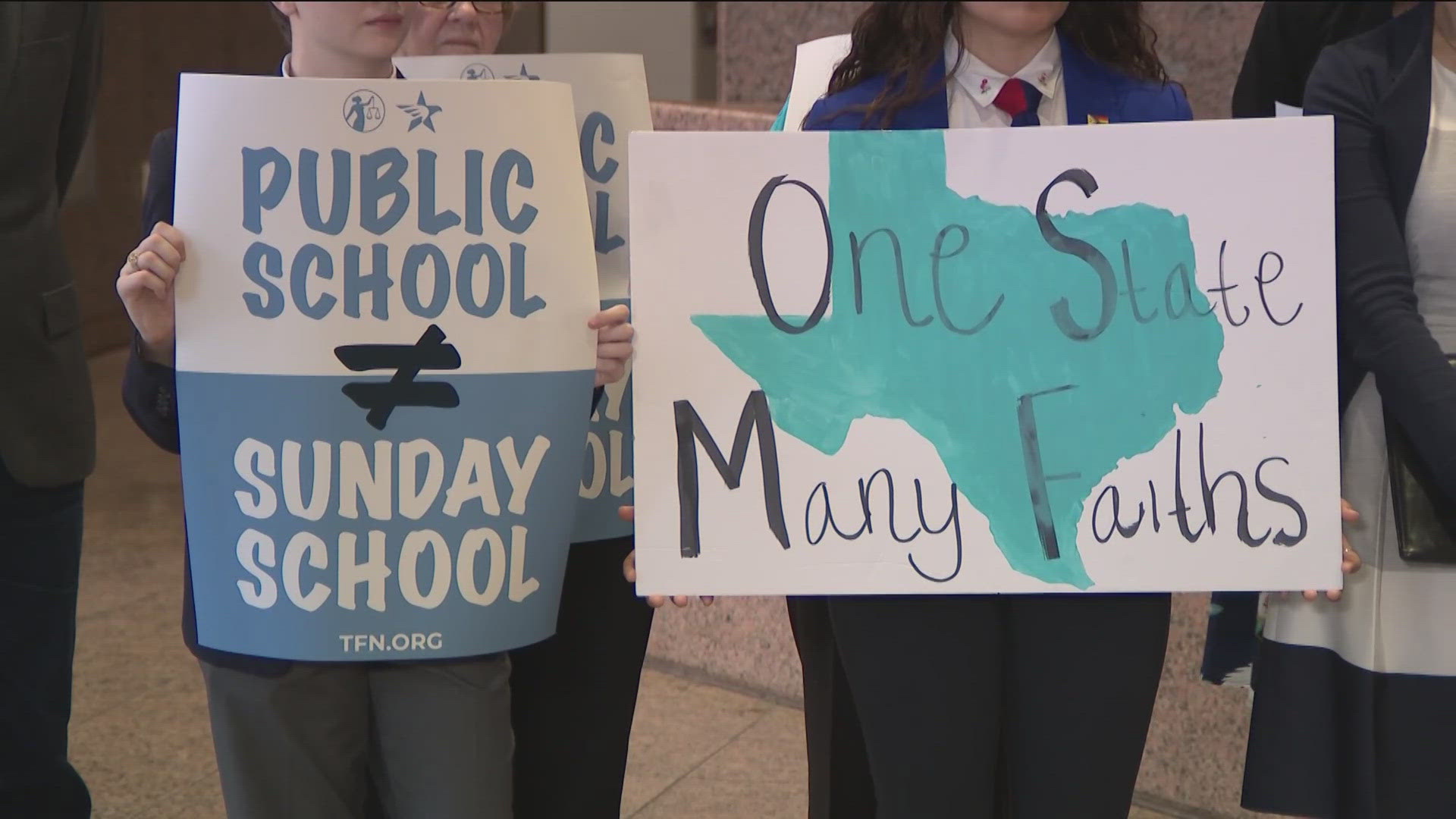AUSTIN, Texas — A new education curriculum proposed by the Texas Education Agency (TEA) is stirring up some controversy, as opponents of the curriculum say it is infused with biblical teachings and unequally promotes Christianity over other religions.
On Tuesday, the Texas State Board of Education (SBOE) listened to more than eight hours of public testimony on the curriculum. More than 100 people signed up to speak, about 70 of whom were brought in by the Texas Freedom Network, a nonprofit social justice organization opposed to the curriculum.
Opponents believe the proposed curriculum fits better in Sunday school.
Texas State Representative James Talarico, a former public school teacher and a current student at the Austin Presbyterian Theological Seminary, was present at Tuesday's meeting. He said the proposed curriculum oversteps the line of Separation of Church and State.
“There is a difference between preaching and teaching, and this curriculum is preaching,” Talarico said. “We are indoctrinating students with this curriculum in the state of Texas, it’s unconstitutional, and I will add, it’s also deeply unchristian.”
Talarico says the proposed curriculum does not give a fair balance of teaching all major religions.
“By elevating one religion over the rest, we are violating the First Amendment of the Constitution,” Talarico said.
Others in opposition to the curriculum, like Mark Chancey - a biblical studies professor at Southern Methodist University, and a Methodist himself - say the material can be dangerous for young children.
“It’s unrealistic to expect young children to bracket aside the religious claims of those stories, especially when the curriculum presents them in such a literalistic fashion,” Chancey said.
Other religious scholars like Chancey say they’re also concerned about who wrote the curriculum, because it has not been clear. They claim the TEA purchased a new curriculum, but then someone re-wrote it with the religious teachings infused into it, which they claim are not even all factually accurate.
“The curriculum gets basic facts wrong, factual errors, religious bias, promoting particular religious views to young children,” Chancey said. “These are all serious problems."
Amanda Tyler, the Executive Director of the Baptist Joint Committee for Religious Liberty, says the curriculum puts teachers in a difficult position because they’re not trained to teach the religious material.
"Teachers who are already overworked and underpaid are now having to take on this new curriculum, without the proper training to really understand how to teach this material in ways that are objective,” Tyler said.
But others went before the State Board of Education on Tuesday to support the proposal.
“When we’re teaching what our founders believed, that’s not enforcing a religion on anyone, it’s teaching this nation,” said Cindi Castilla with the Texas Eagle Forum. “For children to be able to understand their own country, they need to be able to understand some biblical context,” said
Supporters like Jonathan Saenz, the President of Texas Values, say it’s constitutional to teach the Bible, and that the Supreme Court itself has ruled in favor of teaching the Bible several times.
“In the case of Abington v. Schempp, which was a United States Supreme Court decision, the U.S. Supreme Court said, ‘It certainly may be said that the Bible is worthy of study for its literary and historical qualities,’” Saenz said.
He says this push to reject the new curriculum is a deeper jab at Christianity.
“What’s happening today is that some groups and individuals, they want to censor the ability for us to talk about the history of the Bible and its significance in our country,” Saenz said.
The State Board of Education is set to vote on the curriculum in November. After that happens, each individual school district in Texas has the option of either adopting it or choosing another one.
But since the adoption of the new curriculum comes with a financial incentive of about $60 per student, opponents of the curriculum said they will encourage districts to thoroughly read the material before just adopting it for the financial benefit because the district is in a difficult place financially.

